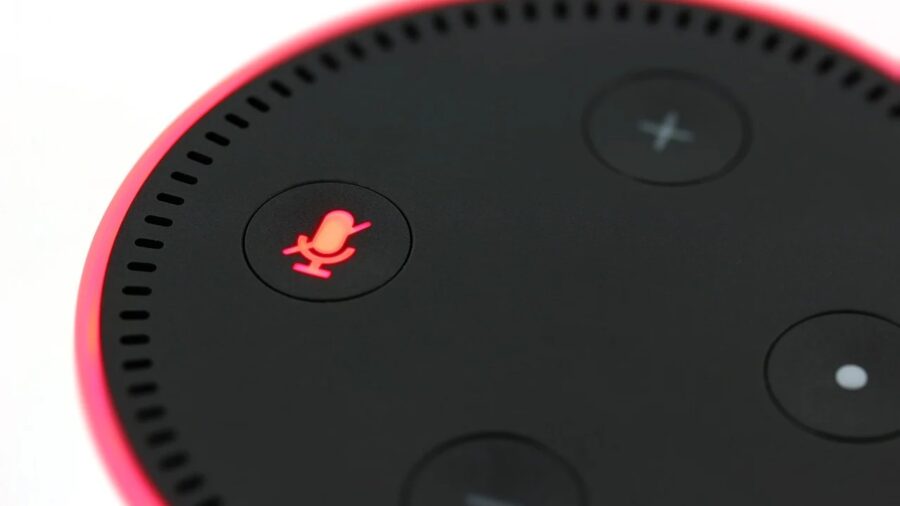Amazon Alexa Will Speak In Your Dead Relative’s Voice
Amazon's virtual assistant device Alexa is about to get a whole new voice, which to say the voice of a dead person.
This article is more than 2 years old

Amazon is one of the biggest companies in the world and has interests in basically every aspect of human life at this point, from technology development to retail shopping to Chris Pine. In one of its more bizarre and creepy moves, Amazon has announced it is developing technology to enable its Alexa devices to be able to imitate the voices of deceased people, or to put it in Star Wars terms, the dead speak. More specifically, Alexa devices are expected to be able to listen to human voices and use artificial intelligence to flawlessly imitate them. While the default Amazon voice of Alexa is generally a pleasant, Star Trek-style female tone (provided by voice-over artist Nina Rolle), the company is really promoting the idea that consumers would like to hear dead people talk at them through their virtual assistants.
The plans for this new developing tech were unveiled at Amazon’s Re: MARS (Machine Learning, Automation, Robots and Space) conference, with the idea being directly promoted that this was a way for Alexa to “make memories last.” According to Business Insider India, the technology is being developed by Amazon so that Alexa can use AI to imitate the voice of an individual after listening to it for about a minute. Reportedly, Amazon Alexa Team senior vice president Rohit Prasad played a video of a child asking the device “Can grandma finish reading me The Wizard of OZ?” at which point the virtual assistant switches voices to an elderly woman and begins reading the classic children’s book. Nothing creepy about that, for sure, and definitely counter-intuitive to children learning about the natural cycles of life, including the inevitability and finality of death.
Perhaps the most bizarre aspect of Amazon developing the technology for Alexa to speak in the voice of a dead, much-loved person is that the deceased aspect is completely irrelevant. From descriptions of the concept, there is no reason that the mega-company needs to position the tech as anything having to do with dead; voice-replication technology would presumably not refuse to function unless the subject is dead or dying. If anything, it can be speculated that Amazon might be promoting this particular aspect of Alexa as a way to tug on the heartstrings of consumers as a marketing technique. If not, it could raise questions about the abilities of Alexa being used to deep-fake voices or replicate the voices of individuals in case a large entertainment content company wants to, say, flawlessly imitate the voice of a deceased actor in a new project.
Virtual assistant devices like Amazon’s Alexa, Apple’s Siri, and Google’s Assistant are rapidly becoming a normal part of life and it makes sense that these companies will explore every method of humanizing them to consumers. Amazon did not reveal how far along the development of this new “dead voice” Alexa feature might be or when they plan to unroll it, but things could start getting a whole lot more creepy soon.












